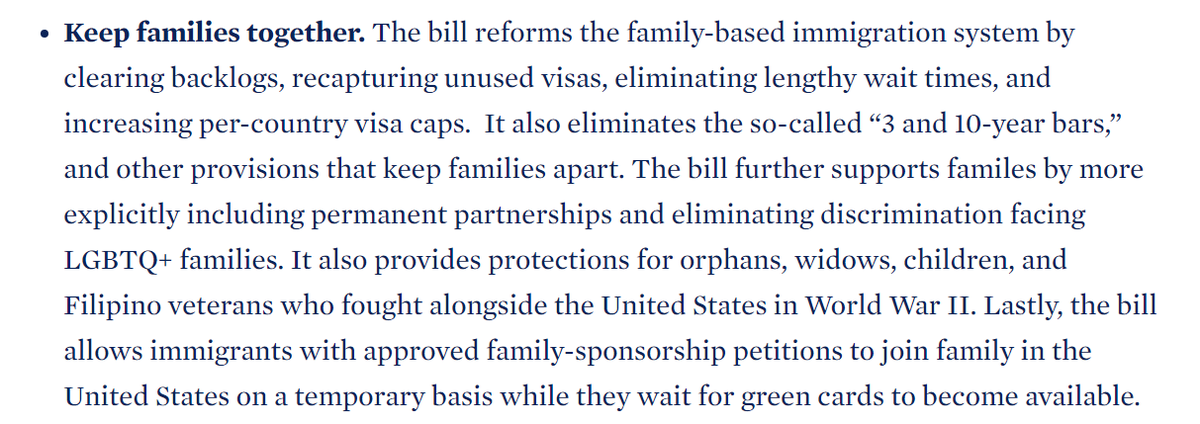
It seems like we WILL get details about the moratorium tonight. It begins on Friday! 🎊
Few details other than: "For 100 days, starting January 22, 2021, DHS will pause removals for certain noncitizens ordered deported."
"Certain" is not yet defined.
Few details other than: "For 100 days, starting January 22, 2021, DHS will pause removals for certain noncitizens ordered deported."
"Certain" is not yet defined.
https://twitter.com/DLind/status/1352097032698261505

Going back and deleting my previous tweets about not getting the deportation moratorium tonight!
Very important to note that tonight's deportation moratorium is ONLY a moratorium on deportation.
The new memo says that "DHS will continue to enforce our immigration laws." That means arrests and likely detentions will continue for now.
More details to come in the next days.
The new memo says that "DHS will continue to enforce our immigration laws." That means arrests and likely detentions will continue for now.
More details to come in the next days.

OKAY we have the actual deportation moratorium memo!
All deportations are paused except for those:
- Not present before November 1, 2020
- Found by ICE director to be a national security danger
- Voluntarily waive rights to remain
- Removal required
dhs.gov/sites/default/…

All deportations are paused except for those:
- Not present before November 1, 2020
- Found by ICE director to be a national security danger
- Voluntarily waive rights to remain
- Removal required
dhs.gov/sites/default/…


In addition, we now have new "Interim Civil Enforcement Guidelines" for ICE:
1. "National security" threats
2. Border security—anyone apprehended after November 1, 2020
3. "Public safety" i.e. those convicted of an "aggravated felony" (which can include misdemeanors)

1. "National security" threats
2. Border security—anyone apprehended after November 1, 2020
3. "Public safety" i.e. those convicted of an "aggravated felony" (which can include misdemeanors)


Importantly, the new interim enforcement priorities do not go into effect until February 1, 2021—two Mondays from now.
In addition, during the 100-day deportation moratorium, ICE is directed to do a "Department-wide review" of immigration enforcement policies.
In addition, during the 100-day deportation moratorium, ICE is directed to do a "Department-wide review" of immigration enforcement policies.

After the 100 day deportation moratorium is finished, the memo anticipates that a new set of enforcement priorities will be issued.
But starting on February 1, anyone who isn't in the three categories listed above is official not an ICE priority!
But starting on February 1, anyone who isn't in the three categories listed above is official not an ICE priority!

This is a good point. The enforcement priorities listed supposedly apply to all DHS, which could mean changes at USCIS as well!
https://twitter.com/woyce/status/1352102119453687808
• • •
Missing some Tweet in this thread? You can try to
force a refresh









